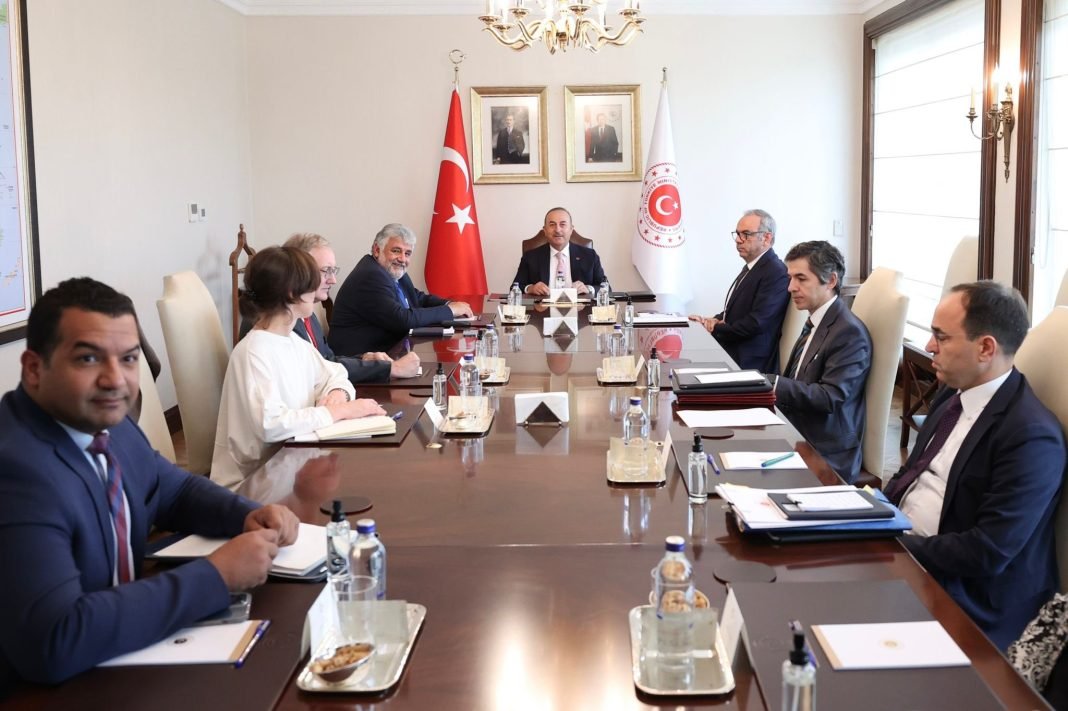Ankara, 13 September 2022 (TDI): Foreign Minister of Türkiye, Mevlüt Çavuşoğlu, in a meeting with the UN Coordinator for the Black Sea Grain Initiative, Amir M. Abdulla on Monday discussed the Istanbul Agreement which enables grain exports from Ukrainian ports.
BM Karadeniz Tahıl Girişimi Koordinatörü’yle Ukrayna limanlarından tahıl ihracatını mümkün kılan İstanbul Anlaşması’nın uygulanmasını görüştük.
Discussed the Istanbul Agreement & its implementation with @AmirMAbdulla, @UN Coordinator for Black Sea Grain Initiative. pic.twitter.com/XhX0DCXLqR
— Mevlüt Çavuşoğlu (@MevlutCavusoglu) September 12, 2022
Mevlüt Çavuşoğlu, the Foreign Minister of Turkiye in a meeting with the UN coordinator for the Black Sea Grain initiative, Amir Abdulla on Monday discussed the Grain exports from the Black Sea under the Istanbul Agreement.
Black sea Grain initiative
The Joint Coordination Centre (JCC) was established on 27 July 2022 in Istanbul. The JCC comprises representatives of Ukraine, the Russian Federation, Türkiye and the United Nations.
Furthermore, the Initiative is focused on exporting grain, other foodstuffs and fertilizers, including ammonia, from Ukraine. In addition, the JCC will monitor the movement of commercial vessels and ensure compliance with the procedures developed through the initiative for shipments to and from Ukrainian ports.
Also Read: Türkiye emphasizes support for Ukraine
Türkiye in the Black Sea
Ukraine is among the world’s leading grain exporters. It supplies more than 45 million tons annually to the global market, according to the UN Food and Agriculture Organization.
The Russian aggression against Ukraine, which began on 24 February 2022, has sparked record food and fuel prices, as well as supply chain issues, with mountains of grain stocks stuck in Silos.
Being a NATO member, Türkiye holds an important geographical position on the Black Sea. Furthermore, the 1936 Montreux Convention regulates the use of the Bosphorus and Dardanelles straits – which links the black sea to the Mediterranean Sea- for cargo ships from other countries.
Under the convention, Türkiye has control over straits and can limit warship passages during wartime. Moreover, it can refuse transit to merchant ships from countries at war with Turkey or fortify the straits in case of conflict.
After the Russian aggression against Ukraine, the Russian Authorities initiated a blockade on the trade route to strangle Ukraine economically.
Being both a NATO member and Russian trade partner, Türkiye has sought a middle-ground foreign policy directive. However, Türkiye has generally supported Ukraine’s legitimacy and territorial integrity from time to time.
Student of International relations








